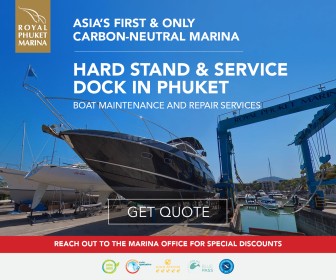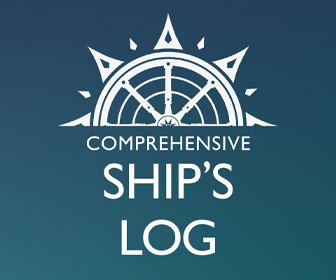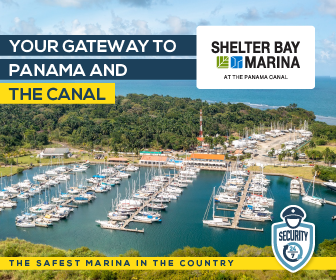Sea Kidnappings Rise Despite Plummeting Global Piracy
February 2017: The boating community is remained to be vigilant and to avoid navigating through waters in which pirates are known to operate.
Published 8 years ago, updated 6 years ago
More crew were kidnapped at sea in 2016 than in any of the previous 10 years, despite global piracy reaching its lowest levels since 1998, the ICC International Maritime Bureau’s (IMB) annual piracy report has revealed.
In its 2016 report, IMB recorded 191 incidents of piracy and armed robbery on the world’s seas.
“The continued fall in piracy is good news, but certain shipping routes remain dangerous, and the escalation of crew kidnapping is a worrying trend in some emerging areas,” said Pottengal Mukundan, Director of IMB whose Piracy Reporting Centre (PRC) has monitored world piracy since 1991.
Maritime kidnappings on the rise
Worldwide in 2016, 150 vessels were boarded, 12 vessels were fired upon, seven were hijacked, and 22 attacks were thwarted. The number of hostages fell to 151.
Maritime kidnappings, however, showed a threefold increase in 2015. Pirates kidnapped 62 people for ransom in 15 separate incidents in 2016. Just over half were captured off West Africa, while 28 were kidnapped from tugs, barges, fishing boats, and more recently merchant ships, around Malaysia and Indonesia.
IMB is urging governments to investigate and identify the kidnappers and punish them under the law.
Mr. Mukundan said the boating community should stay vigilant in high-risk areas. “Shipmasters should follow the latest best management practices and where possible take early action to avoid being boarded. They should inform the IMB PRC or regional counter-piracy centers for help and advice,” he said.
Sulu Sea kidnappings
The kidnapping of crew from ocean-going merchant vessels in the Sulu Sea and their transfer to the Southern Philippines represents a notable escalation in attacks.
In the last quarter, 12 crew were kidnapped from two cargo vessels underway and an anchored fishing vessel, and in November a bulk carrier was fired upon but pirates were not able to board the vessel. Earlier in 2016, crew members were kidnapped in three attacks on vulnerable slow-moving tugs and barges.
IMB advises charterers and owners to consider avoiding the Sulu Sea by routing vessels West of Kalimantan.
Nigeria hotspot
The Gulf of Guinea remained a kidnap hotspot in 2016, with 34 crew taken in nine separate incidents. Three vessels were hijacked in the region. There was a noticeable increase in attacks reported off Nigeria: 36 incidents in 2016, up from 14 in 2015. These included nine of the 12 vessels fired upon worldwide in 2016. Some were almost 100 nautical miles from the coastline.
Meanwhile, Indonesian piracy incidents fell from 108 in 2015 to 49 in 2016. Although the overwhelming majority were low-level thefts, vessels were boarded in all but three of the incidents.
IMB recorded two incidents off Somalia. Pirates attempted to attack a container vessel in the Gulf of Aden in May and fired on a product tanker in the Somali basin some 300 nm from shore in October. For IMB, this latest incident demonstrates that the capacity and intent to attack merchant shipping still exists off Somalia.
Remain vigilant
RYA Cruising Manager, Stuart Carruthers, said: “While defensive measures and the use of armed guards on commercial shipping have had a clear deterrent effect, pirate networks still retain both the intent and capability to conduct piracy. Sailing vessels which are slow and low remain vulnerable to opportunistic attacks and hijackings.
“Whilst merchant vessels are able to implement self-protection measures and employ armed guards to protect them, a sailing vessel cannot and it is the crews that are valuable targets of maritime crime.
“We would urge the boating community to remain vigilant and to avoid navigating through waters in which pirates are known to operate.
“Theft from boats can occasionally lead to violent armed attacks if the owners are on board with the intruders. Personal security and safety must always be given due consideration – even in areas that are usually frequented by boaters and are widely considered to be safe.
“We recommend checking the travel advice on the Foreign and Commonwealth Office website for guidance.”
Report from www.rya.org.uk
See the full report from https://icc-ccs.org
(International Maritime Bureau (IMB) Piracy Reporting Centre)
Related to following destinations: Aden, Angola, Cape Verdes, Colombia, Eritrea, Gambia, Guinea-Bissau, Haiti, Indonesia, Ivory Coast, Kenya, Madagascar, Mozambique, Myanmar (Burma), Namibia, Nicaragua, Philippines, Sao Tome and Principe, Senegal, Sierra Leone, Somalia, South Africa, Sudan, Tanzania, Thailand, Venezuela, Yemen
Related to the following Cruising Resources: Piracy & Security, Piracy-Related Organisations and Websites








